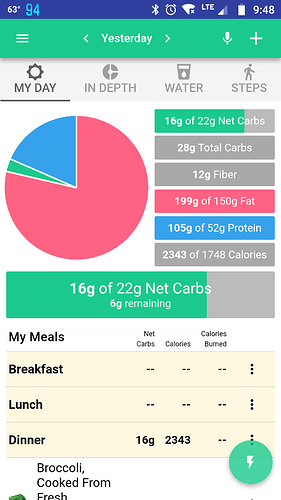Yes, it is, thanks for drawing attention to it. I am a fan of Virta Health and Dr. Phinney as well. It sure goes deep into the matter.
I stopped and went solidly back on Westman’s page 4 guidance. From my tracking days, my protein intake, as a percentage, was well above guidelines I commonly see here.
When you write “it seems,” how do you experience this?
Amen. At 56 I’m similarly motivated. I wish there were more generalized interest in low-carb and sarcopenia. There is no mention of this in the article.
Is there any interest in a “sarcopenia” category, here?
I, too, lost my loose skin some time ago, though my wrinkles are more clearly defined now. However, my ever-shifting constellation of moles sufficiently distracts my dermatologist. 
This study you’ve referenced suggests a lower value window for daily protein intake than what Phinney is recommending. This decreased value is less than what my n=1 has been, which is more consistent with Phinney’s suggested values. Call it happy serendipity, or more simply that Westman knows what he’s doing.
I’m unclear why you included the Mark’s Daily Apple blog post; there isn’t any mention of sarcopenia there?
Most excellent. You are ninja-level.
As have I, though a happy marriage depends on my NOT becoming carnivore. It’s a trade-off I’ll happily take.
At 6’ 1" Virta recommends that I keep my upper limit of meat to 22 ounces a day, which seems generous to me. I’ve heard carnivores say they’ll eat 4 - 5 pounds of meat a day to address their hunger. Perhaps my workouts aren’t as vigorous, but that seems outrageously high?
The age factor, here, seems too important to not include in this discussion. Virta broadly addresses this in the comments section:
- Yes, bodybuilding can increase protein needs. However, it wouldn’t extend beyond 2 grams per kilogram of body weight or the upper range as displayed in the table.


 α-ketoglutarate + aspartate
α-ketoglutarate + aspartate